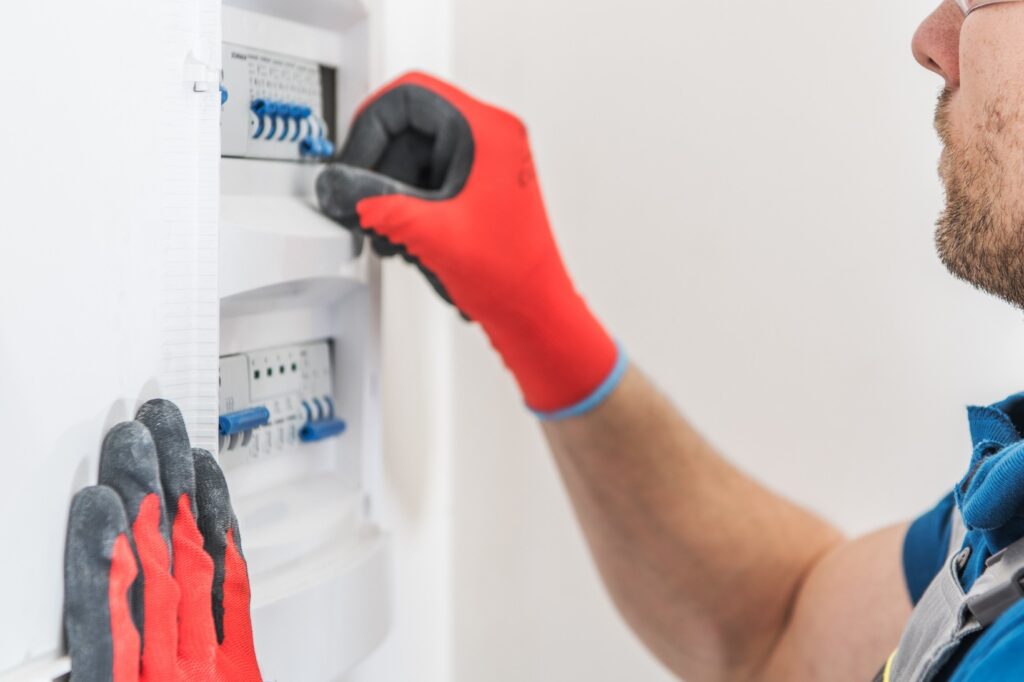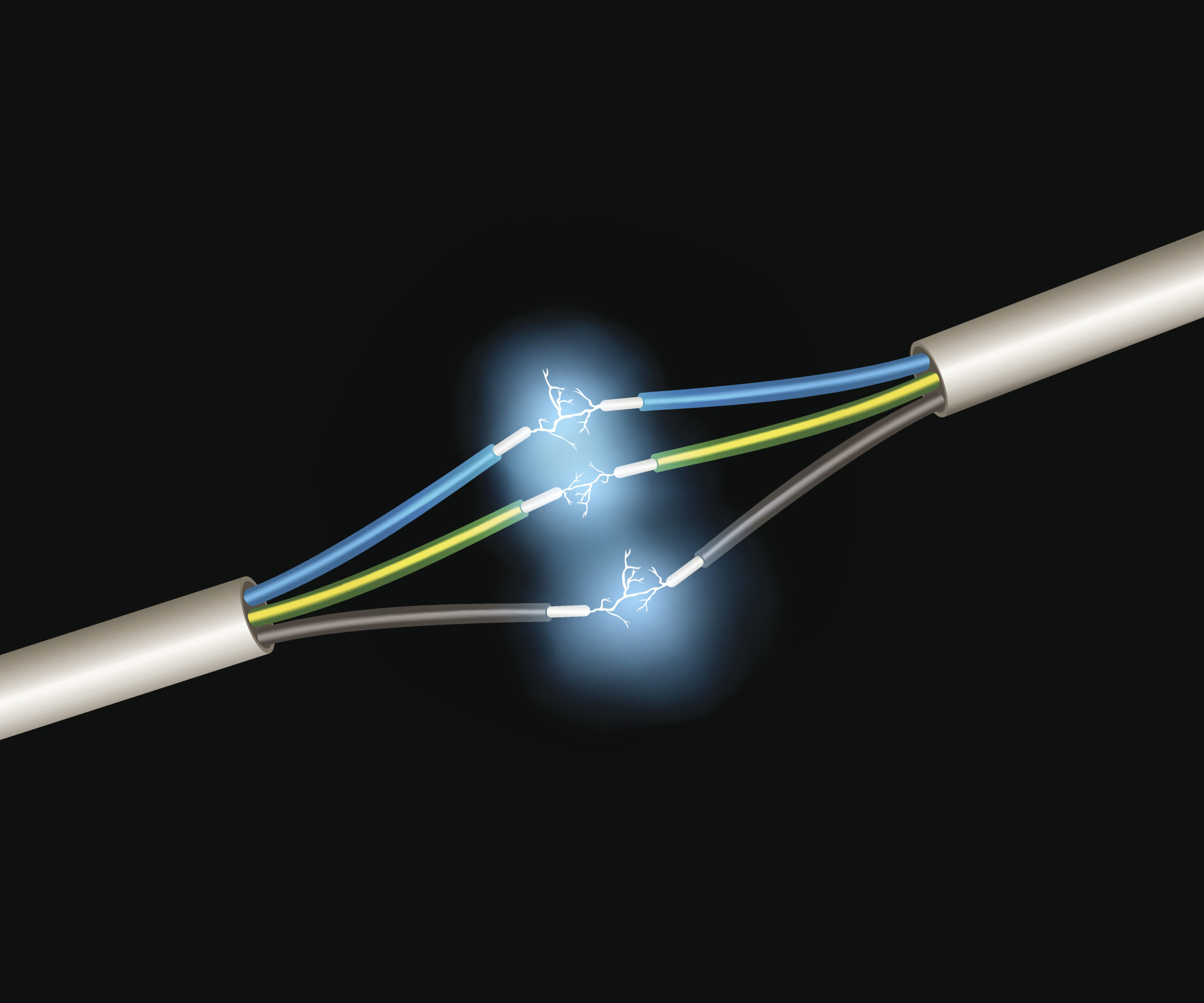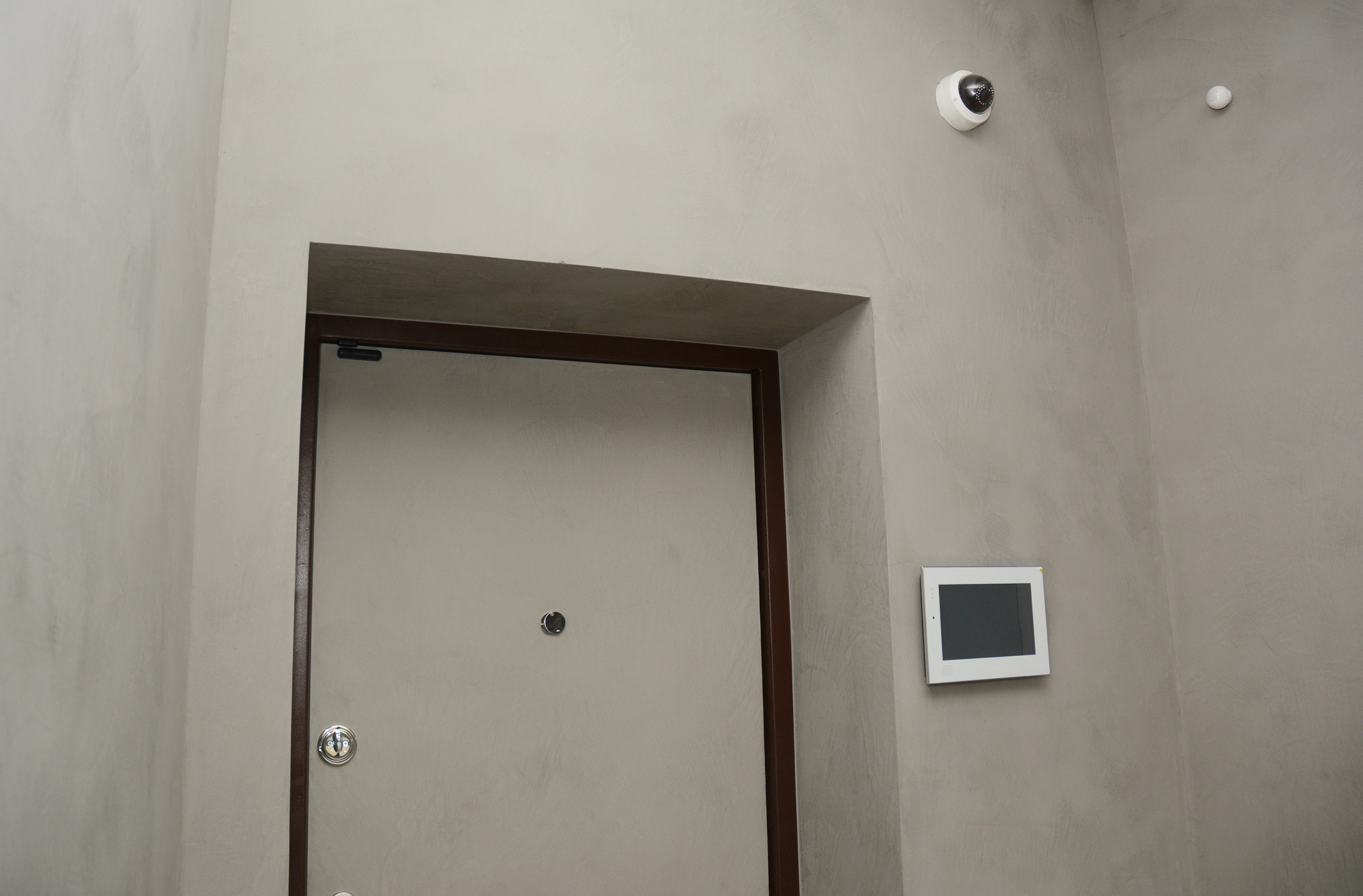
Innovative Home Electrical Diagnostics for Troubleshooting
In Wilmington, NC, homeowners often face electrical issues that can disrupt daily life and pose safety risks. To address these challenges, innovative home electrical diagnostics are becoming increasingly important. These advanced techniques and tools enable quick identification and resolution of electrical problems, ensuring homes remain safe and functional. By leveraging cutting-edge technology, residents can avoid the inconvenience and potential hazards associated with electrical faults.
Home electrical diagnostics have revolutionized the way we approach electrical troubleshooting. Instead of relying on guesswork or invasive methods, technicians can now pinpoint issues with remarkable accuracy. This not only saves time but also minimizes the damage to your property during the diagnostic process. For homeowners in Wilmington and beyond, this means faster, more efficient service that gets right to the heart of the problem.
The benefits of utilizing home electrical diagnostics are numerous. From detecting outdated wiring that could pose a fire hazard to identifying faulty outlets before they fail, these techniques cover a wide range of electrical concerns. Moreover, they provide peace of mind by ensuring that all electrical components are functioning correctly and safely. It’s a proactive approach that can prevent minor issues from escalating into major emergencies.
As the demand for safer, more reliable electrical systems grows, so does the importance of home electrical diagnostics. For residents of Wilmington, NC, having access to such services is invaluable. It not only enhances the safety and efficiency of their homes but also contributes to the overall well-being of the community. With the right tools and expertise, addressing and preventing electrical issues has never been easier.
The Importance of Home Electrical Diagnostics
Understanding the importance of home electrical diagnostics goes beyond just fixing immediate problems. It’s about ensuring the long-term safety and efficiency of your electrical systems. In Wilmington, NC, and other communities, the use of advanced diagnostic tools can reveal hidden issues that might not be noticeable until they become serious. This proactive approach can save homeowners from future headaches and potentially costly repairs.
When experts perform home electrical diagnostics, they use sophisticated equipment to analyze your home’s electrical system thoroughly. This process allows them to detect even the smallest irregularities that could indicate larger problems. For instance, thermal imaging cameras can identify overheating circuits before they lead to a fire, and circuit analyzers can test the overall health of your electrical system. This level of detail ensures that every component is operating as it should.
The peace of mind that comes with home electrical diagnostics cannot be overstated. Knowing that a professional has carefully checked your home’s electrical system and addressed any issues brings a sense of security to homeowners. It’s not just about the immediate benefits, it’s also about preventing dangerous situations like electrical fires or sudden power outages. This preventative measure is invaluable for the safety and comfort of your home.
Lastly, embracing home electrical diagnostics is a smart investment in your property. It enhances the value of your home by ensuring that the electrical system is up to date and functioning efficiently. For residents in Wilmington, NC, and beyond, this means not only living in a safer environment but also potentially saving money on energy bills and future repairs. As technology advances, the importance of staying ahead with home electrical diagnostics will only grow.
Understanding Electrical Diagnostic Tools
In the realm of home electrical diagnostics, various tools stand out for their ability to provide clear insights into the health of electrical systems. One such tool, the digital multimeter, allows technicians to measure voltage, current, and resistance accurately. This precision helps in diagnosing common issues like short circuits or faulty wiring in homes, including those in Wilmington, NC. The versatility of digital multimeters makes them indispensable in ensuring electrical systems function safely and efficiently.
Another innovative tool in the diagnostic toolkit is the ground fault circuit interrupter (GFCI) tester. This device is crucial for checking the proper operation of GFCI outlets, which are designed to protect against electric shock. By simply plugging the tester into an outlet, homeowners can quickly learn if their GFCI outlets are providing the necessary protection. This straightforward test can be a lifesaver, preventing dangerous situations before they occur.
Thermal imaging cameras also play a pivotal role in home electrical diagnostics. These cameras can visualize the temperature of electrical components, highlighting areas that are unusually hot. Such hotspots often indicate underlying problems, such as overloaded circuits or poor connections, that could lead to more serious issues if left unaddressed. By identifying these areas, technicians can take corrective action early, avoiding potential hazards.
Finally, circuit breaker finders are essential for accurately identifying which breaker controls specific outlets or fixtures. This tool simplifies the process of mapping a home’s electrical system, making it easier for technicians to address issues without disrupting the entire system. For residents in cities like Wilmington, NC, using such advanced diagnostic tools ensures that electrical maintenance is both thorough and minimally invasive. Together, these tools enhance the efficiency and safety of home electrical diagnostics, providing peace of mind to homeowners.

Common Electrical Problems and Diagnostics
Home electrical diagnostics play a crucial role in uncovering common electrical problems that might not be immediately apparent to homeowners. For instance, flickering lights in a home could be symptomatic of a more significant issue, such as a poor connection or an overloaded circuit. By employing advanced diagnostic techniques, technicians can swiftly identify the root cause of such problems. This ensures that residents in Wilmington, NC, can enjoy a safe and uninterrupted power supply.
Another frequent issue that homeowners face is frequent tripping of circuit breakers, which can be both annoying and indicative of potential electrical hazards. Through home electrical diagnostics, professionals can determine whether the problem stems from overloading, short circuits, or faulty electrical devices. Identifying the exact cause allows for targeted solutions, thereby preventing future occurrences. This diagnostic approach not only addresses the immediate concern but also contributes to the longevity of the home’s electrical system.
Ground fault occurrences are also a common concern, especially in areas prone to moisture, which includes kitchens and bathrooms. Home electrical diagnostics can pinpoint whether GFCI outlets are functioning correctly to prevent shock hazards. This is particularly important for ensuring the safety of spaces where water and electricity are in close proximity. By verifying the proper operation of these outlets, homeowners can be assured of a safer living environment.
Lastly, outdated or deteriorating wiring can pose significant risks, including the potential for electrical fires. Home electrical diagnostics are invaluable in detecting aging wires that need replacement before they become a severe problem. For homes in Wilmington, NC, staying ahead of such issues through regular diagnostics can mean the difference between safety and disaster. This proactive measure not only protects the home but also ensures the well-being of its occupants.
Advanced Techniques in Home Electrical Diagnostics
In the evolving field of home electrical diagnostics, advanced techniques are continually being developed to enhance the accuracy and efficiency of troubleshooting. For example, power quality analyzers have become an essential tool for identifying fluctuations in electrical supply that can cause damage to sensitive electronics. This is particularly beneficial for homeowners in Wilmington, NC, where coastal storms may lead to power surges. By employing such sophisticated equipment, technicians can ensure the electrical systems within homes are robust and reliable.
Another cutting-edge approach involves the use of ultrasonic testers. These devices detect sounds produced by electrical discharges or arcing, which are common indicators of faulty wiring or connections. This non-invasive method allows for the early detection of potential problems, reducing the risk of electrical fires. It’s a significant step forward in preventive maintenance, offering homeowners peace of mind by safeguarding their property and loved ones.
Smart technology integration into home electrical diagnostics is also gaining traction. Smart sensors, when installed in a home’s electrical system, can monitor and report on the health of the electrical network in real-time. This means issues can be identified and addressed before they escalate into serious problems. For residents in Wilmington, NC, this represents a leap towards smarter, safer homes where electrical systems are not just reactive but proactive in preventing issues.
Lastly, the adoption of augmented reality (AR) in diagnostics is transforming how technicians interact with a home’s electrical system. By overlaying digital information onto the physical world, AR can guide technicians to the exact location of an issue, making the diagnostic process faster and more accurate. This innovative technique minimizes the time spent on troubleshooting, allowing for quicker resolutions to electrical problems. As these advanced techniques become more widespread, homeowners can expect even more efficient and effective home electrical diagnostics, ensuring their homes are safe and their electrical systems are in top condition.
DIY vs. Professional Electrical Diagnostics
When considering home electrical diagnostics, homeowners often weigh the option between attempting DIY fixes and hiring professionals. While DIY approaches can be tempting for minor issues, the complexity of modern electrical systems typically requires the expertise of a professional. In Wilmington, NC, for instance, local codes and standards must be adhered to, something that professionals are well-versed in. This ensures not only the safety of the repair but also its compliance with local regulations.
Professional electrical diagnostics offer a level of thoroughness that DIY methods struggle to match. Technicians use advanced tools and techniques to accurately diagnose issues, which might go unnoticed by the untrained eye. For example, a professional might use a thermal imaging camera to detect hidden hot spots, a task that would be impossible with DIY methods. This level of detail helps in pinpointing the exact problem, saving time and money in the long run.
On the other hand, DIY electrical diagnostics carry inherent risks, not just to the individual performing the task but also to the property. An incorrect diagnosis can lead to improper fixes, potentially exacerbating the problem. In severe cases, this could even pose serious safety risks, such as electrical fires or shocks. Therefore, while DIY projects can be appealing for their perceived cost savings, the risks often outweigh the benefits, especially when it comes to electrical diagnostics.
Ultimately, the choice between DIY and professional home electrical diagnostics comes down to a matter of safety, accuracy, and compliance. For homeowners in Wilmington, NC, and beyond, enlisting the services of a professional not only ensures that the job is done right but also protects the home and its occupants. As home electrical systems become more sophisticated, the value of professional diagnostics becomes increasingly clear, offering peace of mind that DIY methods simply cannot provide.
Safety Tips for Conducting Home Electrical Diagnostics
When conducting home electrical diagnostics, safety should always be the top priority. Before starting any diagnostic procedure, it’s crucial to turn off the main power supply to prevent any accidents. This precaution minimizes the risk of electric shock, ensuring that homeowners in Wilmington, NC, can inspect their electrical systems without putting themselves in harm’s way. Additionally, wearing protective gear such as gloves and safety glasses can offer an extra layer of protection.
Using the right tools is essential for both safety and accuracy in home electrical diagnostics. Non-contact voltage testers, for example, allow individuals to check for live circuits without direct contact with the wires. This tool is particularly useful for identifying potentially dangerous situations before proceeding with any detailed inspection. It’s a simple yet effective way to enhance safety while troubleshooting electrical issues.
Understanding the limitations of one’s knowledge and skills is also important. Home electrical diagnostics can quickly become complex, and certain issues require professional expertise. If a homeowner encounters a problem that seems beyond their ability to diagnose or resolve, it’s wise to call in a professional electrician. This not only ensures the issue is correctly identified and fixed but also prevents the risk of injury or damage to the home’s electrical system.
Finally, keeping a detailed record of all diagnostic findings and actions taken can be incredibly helpful, especially if a professional needs to be called in later. Documenting the process, including any anomalies or issues detected, provides valuable information that can aid in the efficient resolution of the problem. For residents in Wilmington, NC, maintaining such records can streamline any necessary professional intervention, making the process smoother and potentially faster.

How Technology is Changing Home Electrical Diagnostics
The landscape of home electrical diagnostics is undergoing a significant transformation thanks to technological advancements. In cities like Wilmington, NC, innovative tools and software are making it easier and faster to diagnose and resolve electrical issues. These developments not only enhance the accuracy of diagnostics but also reduce the time technicians spend on site. As a result, homeowners benefit from quicker resolutions to their electrical problems, ensuring their systems are safe and reliable.
One of the most notable changes is the integration of smart technology into electrical systems. Smart sensors and devices can now continuously monitor the electrical health of a home, alerting homeowners to potential issues before they escalate. This proactive approach to home electrical diagnostics is a game-changer, offering a level of convenience and security that was previously unattainable. It represents a shift from reactive to preventive maintenance, safeguarding homes against electrical failures.
Additionally, cloud-based analytics play a pivotal role in modern home electrical diagnostics. These platforms collect and analyze data from a home’s electrical system, providing insights into performance and potential problems. For residents in Wilmington, NC, this means having access to detailed reports on their electrical system’s health, which can help in making informed decisions about maintenance and upgrades. This data-driven approach ensures that diagnostics are based on solid information, leading to more accurate and effective solutions.
Lastly, the rise of mobile applications dedicated to home electrical diagnostics is empowering homeowners like never before. These apps offer user-friendly interfaces that guide users through basic diagnostic procedures, helping them identify common electrical issues. While complex problems still require professional intervention, these applications provide a valuable first line of defense. They demystify the process of electrical diagnostics, making it more accessible to the average homeowner and contributing to overall home safety.
Preparing Your Home for Electrical Diagnostic Services
Preparing your home for electrical diagnostic services is a crucial step toward ensuring the safety and efficiency of your electrical system. Before the arrival of technicians in Wilmington, NC, homeowners should ensure that all areas of their home are easily accessible. This means clearing any obstacles that might hinder the technician’s ability to reach electrical panels, outlets, and other key components. Making these areas accessible not only facilitates a thorough inspection but also speeds up the diagnostic process.
Another important preparation step involves creating a list of all known issues or concerns regarding your home’s electrical system. Whether it’s flickering lights, frequent circuit breaker trips, or outlets that don’t work, having this information ready can greatly assist technicians in focusing their home electrical diagnostics efforts. By providing detailed insights into the problems you’ve encountered, you help create a more efficient and targeted approach to troubleshooting.
Homeowners should also consider turning off sensitive electronics before the diagnostic process begins. This precaution helps protect your devices from potential power fluctuations that might occur as technicians test and diagnose your home’s electrical system. It’s a simple yet effective way to safeguard your valuable electronics, ensuring they remain unaffected during the diagnostic procedures.
Lastly, preparing questions to ask the professionals conducting home electrical diagnostics can be incredibly beneficial. Inquiring about ways to improve your home’s electrical efficiency or asking for tips on regular maintenance can provide valuable knowledge. This proactive engagement not only enhances your understanding of your home’s electrical system but also empowers you to take better care of it in the future.
Frequently Asked Questions
What are Home Electrical Diagnostics?
Home electrical diagnostics are tests and analyses performed to find problems in a home’s electrical system. These diagnostics use advanced tools and techniques to quickly pinpoint issues. By identifying the root cause, homeowners can address problems efficiently. This process ensures the electrical system’s safety and functionality.
How do you troubleshoot a power outage?
To troubleshoot a power outage, first check if the issue is local to your home or affects your neighbors too. If it’s just your home, inspect your circuit breaker for a tripped switch. Next, test different appliances to see if the problem is isolated to one area. Using home electrical diagnostics, professionals can quickly identify and resolve the issue, ensuring your system’s safety and reliability.
Can Home Electrical Diagnostics save money?
Yes, home electrical diagnostics can indeed save money. By quickly finding and fixing problems, they prevent costly repairs down the line. These diagnostics also help avoid energy waste, lowering bills. Plus, maintaining a safe and efficient system protects your investment in your home.
What tools are needed for electrical troubleshooting?
For electrical troubleshooting, several key tools are essential. Multimeters measure voltage, current, and resistance, pinpointing problems accurately. Circuit testers check for proper grounding and identify faulty wiring, ensuring safety. Infrared thermometers detect overheating issues without contact, preventing potential hazards. Lastly, clamp meters assess electrical flow in circuits, crucial for effective home electrical diagnostics.
When should you call a professional for electrical issues?
If you notice frequent power outages, flickering lights, or burning smells, it’s time to call a professional. These signs may indicate serious electrical problems that require home electrical diagnostics. A skilled electrician can safely identify and fix the issue, protecting your home and family. Trusting experts ensures accurate diagnostics and effective solutions, keeping your electrical system in top shape.

